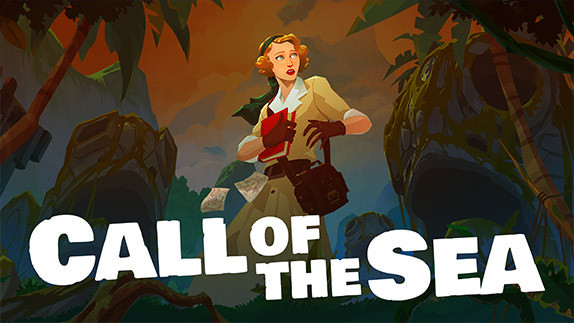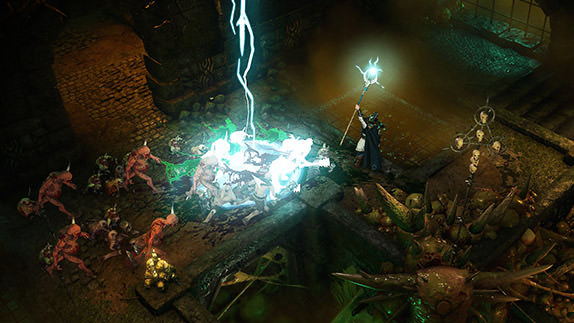Override: Mech City Brawl Review

 By Kevin Mitchell | December 12, 2018
By Kevin Mitchell | December 12, 2018
The arena fighter subgenre is highly overlooked, but over the past few years, there have been numerous great titles that rival the traditional entries in the fighter genre. Focusing less on complex button inputs, these games put level design, simplified control mechanics, and maneuverability/positioning in the limelight. A mech-based brawler, Override: Mech City Brawl, pits players against each other in uniquely designed giant robots. Battling it out across the globe, you'll challenge others locally and online, but the game does feature a single-player campaign. With 12 mechs to master, and even more coming post-launch through downloadable content, each with dozens of skins and customization options to unlock, Override has a decent amount of content, although the fun may only last in short bursts.

The narrative set in the game's story mode falls in line with B-movie monster tropes, as giant monsters have been wreaking havoc across the globe. The United Defense Force (UDF) has been struggling to counter the xenotypes of unknown origin. To bolster their numbers, they turn to pilots from the Mech Battle League—a competitive sport where giant mechs battle against each other. After showcasing your talents by defending Japan, you are invited to the UDF, along with other competitors. Regardless of who you choose as your pilot, the narrative plays out quite similarly, although, with one save file, you have to restart if you want to change your mech.
Each story mission has a set difficulty, and the further you progress, the more difficult the monsters you face become. Not only that, but you'll be pitted against infected versions of other mechs. Set across notable countries, such as Japan, Russia, Morocco, and the United States, the arenas have been crafted to resemble real-life cities/landscapes, featuring recognizable landmarks. After each successful mission, you'll spend research points on improving your mech—increasing your armor rating, thrusters, attack power, and more. This progression is limited to the arcade/story mode, and since you need to wipe your progress if you wish to try a new character, it becomes rather trivial once you reach the last couple of missions. I don't think I even spent a single research point until the very last mission. Mods can also be equipped, which may be given as a reward for completing a mission, providing stat bonuses and other effects, such as being healed with every successful punch or kick. Unlocked weapons can be added to your loadout and will drop into battle; however, outside of the novelty of equipping a shield and laser sword to resemble a Gundam (especially as Watchbot), I found them not worth the hassle.

Mission structures are primarily identical, whether you are facing waves of foes, having to protect an objective, or battle against a boss. Strangely enough, there is a timer that seems to appear randomly, signifying that you'll fail the mission if you don't hastily kill all the monsters. It seems rather pointless, as the time seems to increase with each kill, and I've never seen the counter drop below thirty seconds. There are also only a set number of spawn locations for enemies, and on the Japan map especially, the waves tend to appear from a single position. The monsters' overwhelming numbers mean very little if you can stand still and kill them one by one without even moving as they emerge from the same spot. Stages vary in size but still happen to feel a bit cramped. Some stages, such as Brazil and Egypt, add elements of verticality, with my favorite being able to explore an Egyptian tomb under the pyramids; however, overall the environments are rather flat. Buildings are fully destructible, and it can be quite satisfying to smash through many objects or rows of city blocks, even if the chunks simply disappear. It would have been a neat touch if there was any form of interaction, such as being able to toss a building, a car, or something—anything—at your opponent. It seems like a missed opportunity that the game doesn't feature any grappling or throws. The lack of interaction is quite apparent once everything is destroyed and you are left battling on a flat wide-open landscape.
Override: Mech City Brawl mechanically feels reminiscent of the arcade classic King of Monsters franchise (later ported to consoles). Controlling your massive and colorful mech makes use of every button on your controller. The four trigger/shoulder buttons each control a limb, while the face buttons allow you to block (and counter), jump, dash, and trigger special attacks. Each attack can be charged, knocking down your foe if you connect. While powerful, the charged attacks are easily telegraphed, allowing you to get out of the way or counter. Shields can deflect basic attacks but will not protect against special or charged attacks.
Your segmented special meter fills quite fast by damaging opponents but also fills (at a slower rate) as you take damage. These moves are highly unique to each mech, and you'll want to play around against the AI before hopping online to see if you like their moveset. Watchbot, which grew to become my favorite choice, can transform his arms into MegaMan-style blasters that knock down any foe in their path. Metageckon feels heavily designed after Mechagodzilla, while Vintage looks straight out of the history books with his old-school robotic appearance. Of course, there are ultimate attacks that are not only flashy, with a hint of anime flair, but can turn the tide of a match. However, they can only be triggered once your health gets low enough, serving more like a comeback mechanic than a finisher.

Although you can battle against the AI, Override was designed for local and online multiplayer as its focus. The game features proper one-vs-one ranked and quick play options, but the game is at its best when four mechs battle against each other. The additional mayhem that is produced from the additional mechs is quite compelling. However, the party co-op option is without a doubt a comical and local favorite at my household. Up to four players can cooperatively take control of a single character, with each player controlling a separate limb, similar to how each of the colored lions combines to form Voltron. These can get a bit wonky when only two players work together, as one is in charge of moving, but the other gets camera control.
Simply Put
Override: Mech City Brawl, while clunky and cumbersome, is an enjoyable, casual party fighting game. Battles are quite slow and require proper timing and spacing, especially given how quickly your robot will overheat, limiting the number of attacks that can be performed in a single combo. Each of the colorful cast of characters is highly unique, and I enjoyed unlocking new skins/accessories after each battle. Many of the skins are simple palette swaps, but some of the epic and legendary ones change the styling enough to make things interesting. The single-player content feels unfinished or lacking, but adding other players to one mech certainly ups the entertainment factor.
Note: Override: Mech City Brawl was reviewed on Xbox One. A digital copy of the game was provided by the publisher/developer.




